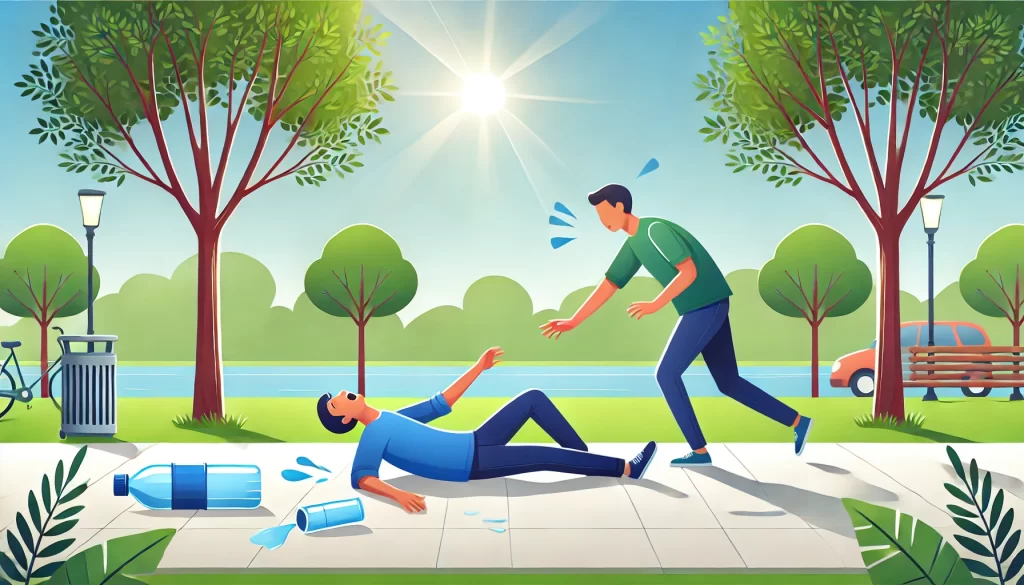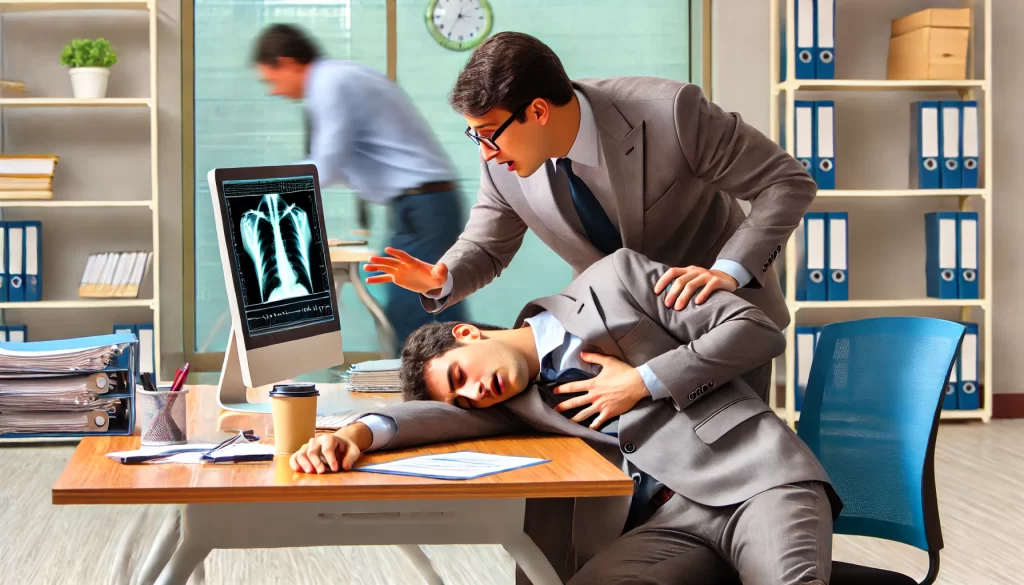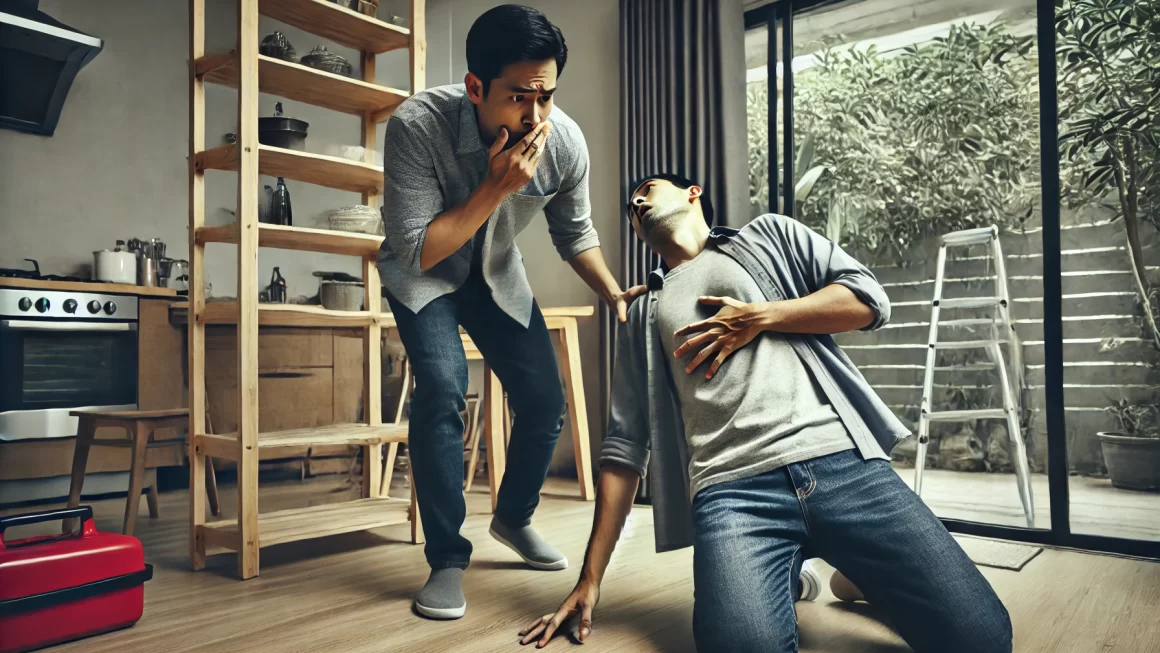Table of Contents
Can you die from fainting? It’s a question that might have crossed your mind if you or someone you know has fainted. Fainting can be a frightening experience, both for the person who faints and those around them. It’s a sudden, unexpected loss of consciousness that can leave everyone in shock. But the genuine concern is whether fainting can be fatal. This article will explore the risks associated with fainting when it might be life-threatening and what you can do to stay safe.
What Is Fainting?

Syncope, sometimes known as fainting, is an abrupt, transient loss of consciousness. It happens when there’s a significant drop in blood flow to the brain. This drop can be triggered by factors such as standing up too quickly, dehydration, or extreme emotional distress. When your brain doesn’t get enough blood, it causes you to pass out, usually for just a few seconds or minutes. But can you die from fainting? In most cases, fainting is harmless, but there are situations where it can become dangerous.
Common Causes of Fainting
Understanding the reasons behind fainting can help answer the question, can you die from fainting? Let’s look at some common causes:
Dehydration
Dehydration is one of the leading causes of fainting. When your body lacks enough fluids, blood volume decreases, leading to lower blood pressure. This reduction in blood pressure can cause a fainting episode. If not addressed promptly, dehydration can lead to more severe health issues.
Sudden Drop in Blood Pressure
A sudden drop in blood pressure, or orthostatic hypotension, can happen when you stand up quickly after sitting or lying down. This can lead to dizziness and fainting. While this is usually not life-threatening, it can be dangerous in certain situations.
Emotional Stress
Extreme emotions like fear, anxiety, or even happiness can trigger fainting. This is often due to the body’s response to stress, which affects the heart and blood vessels. The question remains: can you die from fainting caused by stress? While rare, it’s possible if the fainting occurs in a dangerous situation.
Heart Problems
Certain heart conditions, such as arrhythmias, can cause fainting. These conditions disrupt the heart’s normal rhythm, leading to a temporary decrease in blood flow to the brain. In these cases, the answer to the question, can you die from fainting, is yes. Heart-related fainting can be a sign of a severe condition that requires immediate medical attention.
Low Blood Sugar
Low blood sugar, or hypoglycemia, can also lead to fainting. This is more common in people with diabetes who take insulin, but it can happen to anyone who skips meals or exerts themselves physically without eating. While fainting from low blood sugar isn’t usually fatal, it can be dangerous in certain situations.
When Is Fainting Dangerous?
While most fainting episodes are harmless, there are times when fainting can be a sign of a more severe problem. So, can you die from fainting? In some cases, the answer is yes. Here’s when fainting becomes dangerous:
Fainting Due to Heart Conditions
If fainting is caused by a heart condition, such as a heart attack or arrhythmia, it can be life-threatening. The heart’s inability to pump blood effectively can lead to a lack of oxygen to the brain, resulting in sudden death if not treated immediately. This is one of the scenarios where fainting can indeed be fatal.
Head Injuries
Fainting in a dangerous environment, such as while driving or standing near sharp objects, can lead to severe head injuries. If a person faints and hits their head, it could result in brain damage or even death. This highlights another way can you die from fainting becomes a critical question.
Fainting in High-Risk Situations
Fainting in high-risk situations, like swimming or operating heavy machinery, can be fatal. Losing consciousness in these scenarios can lead to drowning, severe accidents, or other deadly consequences. In such cases, fainting can quickly turn into a life-threatening event.
How to Prevent Fainting

Knowing how to prevent fainting can reduce the risk of dangerous situations. Here are some tips:
Stay Hydrated
Drink plenty of water throughout the day, especially in hot weather or when physically active. This helps maintain your blood volume and prevents dehydration-related fainting.
Stand Up Slowly
Avoid standing up too quickly, especially after sitting or lying down for a long time. Give your body time to adjust and regulate blood pressure.
Manage Stress
Practice stress-relief techniques like deep breathing, meditation, or yoga to manage emotional triggers that could lead to fainting.
Eat Regularly
Keep your blood sugar levels stable by eating small, regular meals. Eat regularly; if you are prone to hypoglycemia, avoid missing meals.
What to Do If Someone Faints
Knowing what to do if someone faints can be crucial. Here’s a step-by-step guide:
Help Them Lie Down
If someone faints, help them lie down flat on their back. The brain’s blood supply is restored in this condition.
Raise Their Legs
Elevate their legs slightly above heart level. This also helps increase blood flow to the brain.
Check Their Breathing
Ensure they are breathing normally. If they’re not, seek emergency medical help immediately.
Stay with Them
Stay with the person until they regain consciousness and feel better. Call for medical assistance if they don’t wake up within a minute or two.
Also Read: Radical Health Alpine: Transform Your Wellness Journey Today
When to Seek Medical Help
Not all fainting episodes require medical attention, but some do. Here’s when you should seek help:
After a Head Injury
If the person faints and hits their head, seek medical help immediately. They could have a concussion or other serious injuries.
Repeated Fainting
Frequent fainting spells indicate an underlying health issue that needs medical attention.
Accompanying Symptoms
If fainting is accompanied by symptoms like chest pain, shortness of breath, or irregular heartbeat, seek emergency medical help immediately.
So, can you die from fainting? While most cases of fainting are harmless, there are situations where it can be life-threatening. Understanding the causes, recognizing the warning signs, and knowing how to respond can make all the difference. Stay informed, take preventive measures, and don’t hesitate to seek medical help when needed. Your safety is paramount.
By addressing the question of whether fainting can be deadly, this article aims to provide valuable information that can help you and your loved ones stay safe. Remember, it’s always better to be cautious and consult a healthcare professional if you have concerns about fainting or related health issues.




